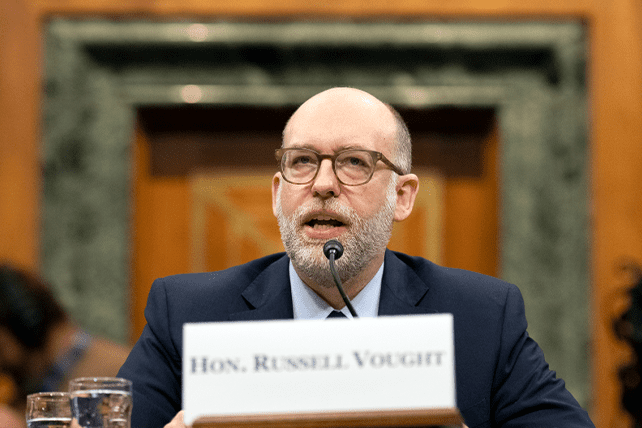In 2019, Wheaton’s board approved a commitment to “Christ-Centered Diversity,” which included pledges to recruit students and employees from underrepresented groups. Last year, the school restricted employees’ ability to designate personal pronouns, including “they/them” pronouns, though the policy did not apply to students.
The second letter also points to a growing acceptance rate at Wheaton, which the writers claim jumped from 66% in 2012 to 88% in 2024, saying it is eroding the college’s standards.
“Wheaton is a symbol,” Eric Teetsel, a Wheaton alumnus who replaced Vought as the head of the Center for Renewing America, told The New Yorker. “It’s bigger than just an institution. It is, and has been, the banner of evangelical higher education … Even people who didn’t go there recognize that if a place like Wheaton can succumb to the same story that Harvard University and Princeton University and Yale and so many other schools that started with an explicitly faith-based mission and succumb to the world—if that can happen at Wheaton, we’ve lost something bigger than just Wheaton.”
John Hawthorne, a retired sociologist who studies religion, politics and higher education and is author of “The Fearless Christian University,” said Wheaton’s difficult week reminds him of the 2021 clash at Grove City College, another Christian school whose faculty, students and alumni debated in a series of open letters whether the school had succumbed to “mission drift” from its traditional values.
Such conflicts, Hawthorne told RNS, will be unavoidable for many Christian colleges, especially given the disparate responses to Trump’s executive actions and the vulnerability and volatility of the social media age.
“An institution that hasn’t thought about how to position itself with confidence is going to be reactionary all the time. … As this illustrates, there’s no way you can please all the constituents,” said Hawthorne. “It’s better for the university to be able to speak to (their) values than for various constituent groups to call them out, telling them what their values ought to be.”
This article originally appeared here.

